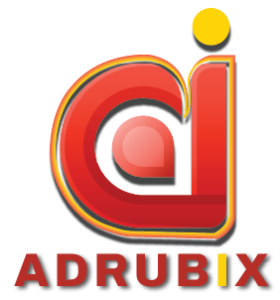Introduction
In today’s fast-paced digital world, managing your online presence effectively is crucial for businesses and individuals alike. One tool that can greatly help in this endeavor is a content calendar. But what exactly is a content calendar, and why is it so important? Let’s delve into the topic and explore 10 compelling reasons why you should create a content calendar for your social media and content scheduling needs.
-
Organized Content Planning
A content calendar provides structure to your content planning process. By outlining your content topics, formats, and publishing schedules in advance, you can maintain a well-organized approach to your online presence. This organization helps in avoiding last-minute scrambles for content ideas and ensures a steady stream of quality content for your audience.
-
Consistent Posting Schedule
Consistency is key in the online world. With a content calendar, you can plan and stick to a consistent posting schedule across your social media platforms and other content channels. This regularity not only keeps your audience engaged but also signals to algorithms that your content is reliable, potentially improving your reach and visibility.
-
Time Management
Efficient time management is essential for productivity. A content calendar allows you to allocate time for content creation, editing, and publishing in a systematic manner, reducing last-minute rushes and stress. By scheduling tasks in advance, you can also free up time for strategic activities such as audience engagement and campaign analysis.
-
Strategic Content Alignment
Aligning your content with your overall marketing and business goals is crucial for success. A content calendar enables you to plan content that resonates with your target audience while supporting your strategic objectives. Whether it’s promoting new products, highlighting company values, or addressing customer pain points, a well-planned content calendar ensures that every piece of content serves a purpose in your larger strategy.
-
Improved Collaboration
For teams working on content creation and marketing, a content calendar serves as a central reference point. It facilitates collaboration by allowing team members to see upcoming content, deadlines, and responsibilities clearly. This transparency fosters teamwork, minimizes misunderstandings, and ensures that everyone is working towards common objectives.
-
Seasonal and Trend Integration
Staying relevant to current trends and seasonal themes can boost your content’s visibility and engagement. A content calendar allows you to plan and integrate seasonal and trending topics into your content strategy seamlessly. Whether it’s holiday promotions, industry events, or viral challenges, incorporating these elements into your content calendar ensures timely and relevant content that resonates with your audience.
-
Content Repurposing Opportunities
Creating quality content takes time and effort. A content calendar helps you identify opportunities for repurposing existing content across different platforms and formats, maximizing its reach and impact. For example, a blog post can be repurposed into social media snippets, infographics, podcasts, or video content, extending its lifespan and catering to diverse audience preferences.
-
Performance Tracking
Measuring the performance of your content is essential for refining your strategy. With a content calendar, you can track key metrics such as engagement, reach, and conversions for each piece of content, enabling data-driven decision-making. By analyzing these metrics regularly, you can identify top-performing content, understand audience preferences, and adjust your content strategy accordingly for better results.
-
Adapting to Changes
Flexibility is important in digital marketing. A content calendar provides a framework that allows you to adapt to changes in your industry, audience preferences, or external events while maintaining consistency and relevance. Whether it’s responding to trending topics, addressing customer feedback, or pivoting your messaging based on market shifts, a well-planned content calendar equips you to navigate changes effectively and stay ahead of the competition.
-
Long-term Strategy Development
A long-term plan is necessary to have an online presence that is enduring. A content calendar helps you plan and execute your content strategy over weeks, months, or even years, ensuring continuity and growth. By aligning short-term goals with overarching objectives, you can create a roadmap for content creation, distribution, and optimization that drives sustained engagement, brand loyalty, and business success.
Conclusion
In conclusion, a content calendar is not just a scheduling tool but a strategic asset that can elevate your content marketing efforts to new heights. Whether you’re a solo content creator or part of a marketing team, investing time in creating and maintaining a content calendar can yield significant benefits in terms of organization, consistency, and effectiveness of your online content.
So, what are you waiting for? Start creating your content calendar today and experience the difference it can make in your content marketing journey!





